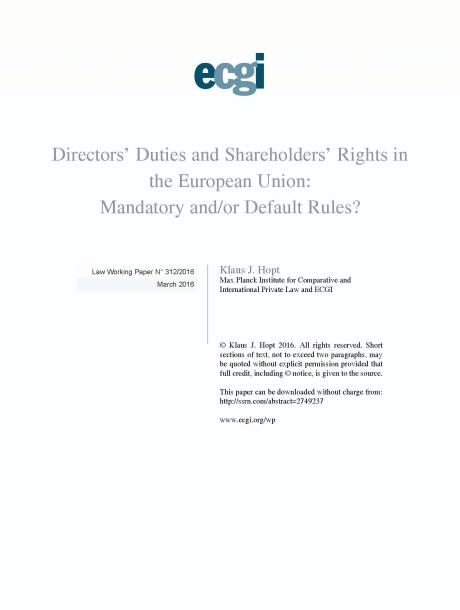
Directors? Duties and Shareholders? Rights in the European Union: Mandatory and/or Default Rules?
Abstract
Deciding between mandatory and/or default rules (or as they are also called: eligible law,enabling rules, optional rules, legal menus, rules allowing contracting around, fallback provisions, and dispositives Recht) is a fundamental choice for the law. To what degree do legislators, courts, academia and lawyers trust private ordering in stock corporation law or expect a strong benevolent state to regulate? The legislative models differ greatly. In the USA, freedom of contract is the general principle also in stock corporation law, while in Germany just the opposite is true, as laid down in the German Stock Corporation Act. Yet both jurisdictions are outliers. Most European countries have chosen a middle way between these two extremes. This article analyses the policy reasons given in the USA and in Europe and discusses the various models in the UK, Switzerland, Belgium, France, Italy, Spain, Austria and the Netherlands. In the European Union, corporate law and capital market law differ in this respect, but the free choice between more or less regulated corporate forms, the free movement of corporations within the EU and competition of legal orders give flexibility to the enterprises. Unfortunately this flexibility is diminishing as a consequence of paternalism and protectionism after the financial crisis.



